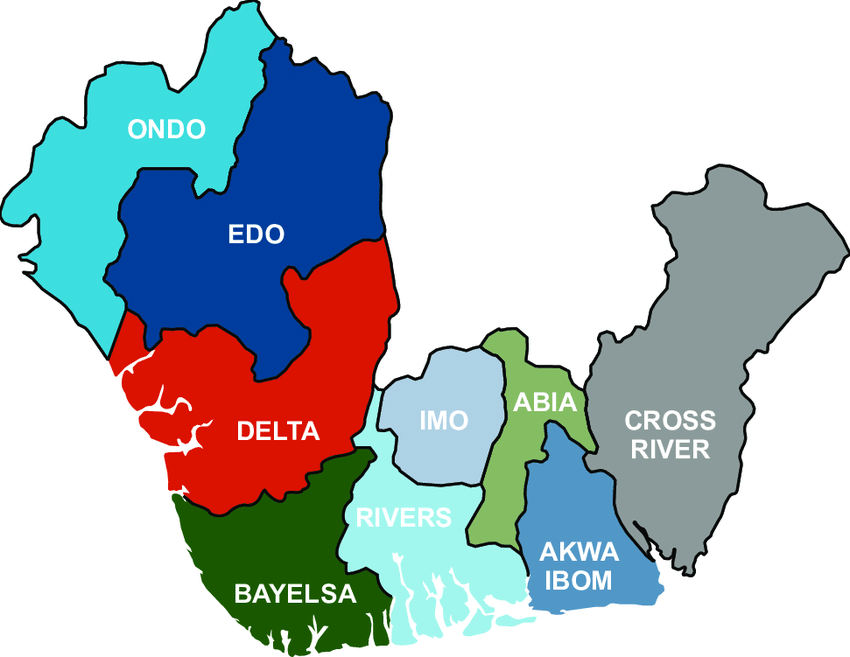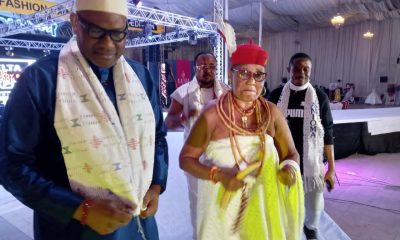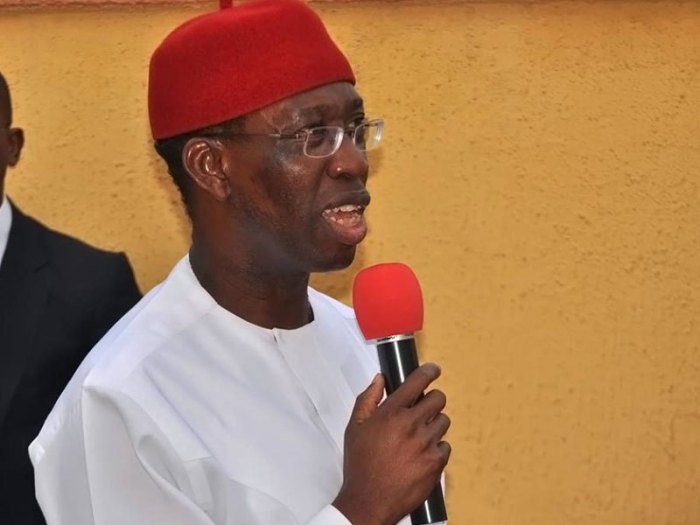Education
Controversial Hike in School Fees and Delta State Government

By Jerome-Mario Chijioke Utomi
Even though previous opinion articles, commentaries and interventions by this author favoured/supported policies and decisions of the Delta State Government, it will, however, for reasons, be considered very logical, rational and practical to say that the same state government will definitely feel hesitant as to why they should read this present piece or accept the content of solution it proffers as beneficial and helpful to the real development in the state education sector as the piece stoutly opposes the state government’s inconsiderate decision and describes as ill-timed the recent hikes in students’ fees in virtually all the state-owned institutions of higher learning.
Aside from the belief that in Nigeria, once a direction is chosen by an average Nigerian leader, instead of examining the process meticulously and setting the right course, many obstinately persist with the execution of such plans regardless of a minor or major shift in circumstance.
I have also in the past few weeks read with dismay, so many articles, commentaries and analyses that scantly suggest why the Delta State Government should not be blamed for the thoughtless hike in schools fees across Delta State-owned institutions of higher learning.
Synoptically, while some argued that this was not the time to hold our state government accountable for the hike in school fees because there are more important matters confronting the state, others argued that the only remedy for this problem is simply to encourage parents to accept the fate as across the world, education is neither easy nor cheap.
Indeed, while this scant and slanted reasoning may have been allowed to fly on the faces of Deltans, the truth must be told to the effect that the state leadership is bound to face confusion in their minds if they allow these new fee regimes to stand.
Before proceeding to critical analysis, it is important to underline some unpalatable actions that recently spread out its wings in the state education sector and have as a consequence caused concern for the students and brought dropping spirits among parents.
The management of Ogwuashi Uku Polytechnic, one of the state-owned institutions of higher learning, in a statement released on January 10, 2022, stated that all new students of Delta State origin undertaking the Ordinary National Diploma (OND) are to pay the sum of N75,500, while non-Deltans are to pay N99,180.
Also, new Delta State students in Higher National Diploma (HND) would pay N80,500, while non-Deltans are to pay N99,180. Moreover, the old OND students would pay N60,400 for Deltans, while non-Deltans would payN72,900. As for the HND, non- Deltans would pay N71, 650, while Deltans are to pay N60, 400.
Alarmingly, before the dust raised by such a thoughtless increase in fees could settle, that of the Delta State University, Abraka, another state-owned university was up. A peep into the university fees structure reveals that a new intake in the Law faculty has to cough out N242,000, among others.
As if that was not enough woes for the knowledge-hungry students and their parents, the Delta State University of Science and Technology (DSUST), Ozoro, came up with another fee regime that requires indigenes of the state to pay N185,000 as school fees while non-indigenes are expected to pay N225,000.
Looking above, it is evident in my view that the state has defined leaning too narrowly in a manner devoid of process and outcome fairness by getting preoccupied with revenue generation without consideration to the students’ comfort or wellbeing.
From the shocking phenomenon of declining standards of physical infrastructures and the near-total collapse of basic facilities that ought to be functional in a tertiary institution, to thoughtless demand for fees of varying amounts proposed by the school authorities ahead of logic-a development that is financially squeezing the life out of the innocent students and their parents.
At this point, this piece will cast a glance at the scary consequences of the present hike in school fees if allowed.
Fundamentally, there are a large number of youths in the state that are knowledge/education hungry and daily project vividly and openly their potential, nature, character, behaviour, performance skills and talent that needs to be nurtured in a conducive environment and fairest fees.
As we know, any developmental plan in the state without youth education delivered in a well-structured learning environment and fair fees will amount to a mere waste of time and effort.
The second point/concern is that with this increment, Deltans and the world at large are bound to feel and validate as true that education in the state is in shambles simply because of the government’s progressive non-recognition of the right to education as a human right despite Nigeria’s membership of a number of international conventions, including the International Covenant on Economic, Social and Cultural Rights where the right is respected.
It also exemplifies the fact that Governor Ifeanyi Okowa’s led administration has not adopted a different, practical, factual, base level and offbeat approach to this highly important and sensitive sector.
More than anything else, the development projects a realistic picture, a different scenario and exposes the factual situation which is the ground-level reality of the poor education sector in the state.
This piece is not alone in this belief system.
Recently, a well-respected community newspaper in the state, in one of its weekly editorial comments, described/considered as ill-timed, thoughtless and a decision reached in bad light the recent upward review of students’ school fees by the management/authority of Ogwuashi-Uku Polytechnic.
A development the newspaper added has fuelled a disquiet relationship between the students and the school management with the students threatening massive protest if the management of the school insists on implementing the new school fees/service charge regime introduced recently.
While the news organization called on the school management to halt the present move, particularly as their argument that the increment was necessitated by the need to sustain qualitative education and a conducive environment for learning in line with the global best standard can no longer hold water when faced with the embarrassing fact, it essentially urged the Delta State government to immediately call on the Rector and of course the governing board of the institution to rescind this decision/thoughtless hike in school fees.
Likewise, this piece on the final note underlines that if providing quality education is the interest of the state government, the state should make effort to increase state budgetary allocation to education and not by taxing the students or their parents of which majority of them are either without jobs or are retirees whose pensions are not promptly paid.
Governor Ifeanyi Okowa’s led administration must also not forget that education is the right of our children and the bedrock of development. That ‘with sound educational institutions, society is as good as made -as the institutions will turn out all rounded manpower to continue with the development of the society driven by well thought out ideas, policies, programmes, and projects’.
The state governor urgently needs to find a new approach to demonstrate that he truly loves education via a reduction in the fees of these students. Taking such action will in the opinion of this piece offer him an edge over others in the leadership corridor.
This is the way to go.
Utomi Jerome-Mario is the Programme Coordinator (Media and Public Policy) of Social and Economic Justice Advocacy (SEJA), a Lagos-based Non-Governmental Organisation (NGO) and can be reached via Je*********@***oo.com/08032725374
Education
Hallos Launches Learning247 Summit

By Adedapo Adesanya
Live-learning and creator-economy platform, Hallos, as part of its expansion drive, has unveiled plans to equip millions of youths and women with digital skills and monetisation opportunities through the Learning247 Hallos Summit, aimed at integrating Nigeria’s South-East into the rapidly expanding global creator economy.
At a sensitisation and stakeholder engagement forum in Enugu, the organisation also called for stronger strategic partnerships with government agencies, educational institutions, development organisations, media houses and private-sector stakeholders to advance the creator economy as a credible engine for mass employment, youth prosperity and inclusive economic growth.
The chief executive of Hallos, Mr Alexander Oseji Uzoma, renewed the call for increased investment in internet penetration, reliable power supply, digital infrastructure, creative studios and youth-focused innovation hubs across Nigeria, especially the South-East.
Describing the creator economy as one of the most accessible and scalable employment frontiers globally, he noted that with basic tools such as a smartphone, internet access and creative skills, young people can build audiences, monetise knowledge and generate sustainable income without heavy capital investment or long career pathways.
According to Mr Uzoma, the creator economy offers low-barrier entry into diverse professions, including content creation, social media influencing, live tutoring and digital coaching, video production, podcasting, graphic design, music and performance arts, digital marketing, merchandise design, e-commerce and community management. These activities support a broader value chain spanning production, distribution, technology and management.
The Hallos co-founder also explained that global projections place the creator economy in the hundreds of billions of dollars, with millions of creators worldwide earning sustainable incomes, stressing that Hallos is focused on localising these opportunities to ensure African youths can participate meaningfully and compete globally.
He further noted that Hallos operates a live-learning and creator-focused platform that integrates education, gamified quizzes, merchandising and voluntary fan donations into a single ecosystem. Through the platform, creators can host live learning sessions and masterclasses, earn from quizzes and challenges, sell branded merchandise, receive voluntary donations, build communities around their expertise and organise monetisable podcasts.
Mr Uzoma said the creator economy, driven by social media platforms, streaming services, digital commerce and content monetisation tools, has evolved into a major global industry capable of generating wealth, creating jobs and expanding export earnings.
He stressed that social media should no longer be viewed as a recreational space but as a viable business environment for wealth creation.
“The focus should not just be on content creation alone but on building businesses around content. It is about value creation and structured digital entrepreneurship,” he said.
He disclosed that Hallos intends to reach about 10 million youths nationwide, with over 5,000 already engaged across its programmes, while placing strong emphasis on bridging the gender gap by empowering women and girls through targeted digital training, mentorship and access to monetisation platforms.
As the digital economy continues to expand, Hallos said the creator economy stands out as a practical and scalable solution to youth unemployment, offering low entry barriers and global earning potential.
The company reaffirmed its commitment to bridging the gap between talent and income, enabling young Africans to earn well above minimum wage through creativity, knowledge and structured participation in the global digital economy.
Education
Bayero University PG Students to Enjoy Dangote’s N1.5bn Scholarship

By Modupe Gbadeyanka
Post-graduate students of Bayero University Kano (BUK) will benefit from a scholarship worth about N1.5 billion from the Aliko Dangote Foundation (ADF).
The businessman put down the funds to support eligible MBA, entrepreneurship, and management postgraduate students of the institution under an initiative known as MHF Dangote Graduate Business Scholarship.
At a ceremony on Tuesday, the foundation and the school signed a Memorandum of Understanding (MoU) at the auditorium of the Dangote Business School, Kano.
The deal is to provide N300 million annually over five years as scholarship awards to the beneficiaries, who will receive N150,000 each per session, beginning with the 2024/25 academic session. This is equivalent to 50 per cent of the current N300,000 fee paid by the post-graduate students. There are 1,225 students in the Business School (696 fresh and 529 returning students).
One of the beneficiaries, Mr Khalid Bababubu, who is into manufacturing and specialises in MBA, Finance and Investment, thanked the organisation for the gesture.
“We are happy to be beneficiaries of this initiative. Education is the bedrock of national development, and we will not take this scholarship for granted,” he said.
A representative of ADF, Ms Mariya Aliko Dangote, said, “Our vision at the Foundation is to build human capital that translates into economic opportunity.
“Strengthening business and entrepreneurship education is critical to turning knowledge into enterprise, innovation, and jobs. This scholarship deepens our commitment to Dangote Business School by investing directly in the next generation of business leaders and change-makers.”
On his part, the Vice Chancellor of Bayero University Kano, Prof. Haruna Musa, said, “This support comes at a critical time for many families. Beyond financial relief, it strengthens the Business School’s role as a centre for developing entrepreneurial and management talent, particularly for women who are increasingly taking leadership roles in enterprise.”
It was explained that newly admitted students will receive automatic tuition reductions during registration, and returning students who have already paid in full will receive rebates. The N300 million allocation is structured to cover all eligible postgraduate students based on current enrolment capacity.
Any unutilised balance in the first year will be retained within the Dangote Business School development envelope to strengthen learning infrastructure and digital academic capacity, ensuring continued enhancement of the academic environment.
The MHF Dangote Graduate Business Scholarship is distinct from ADF’s recently announced nationwide STEM education interventions.
Education
Entries for InterswitchSPAK 8.0 Begin, Over N40m up for Grabs

By Aduragbemi Omiyale
Senior secondary school students across Nigeria have been invited to apply and demonstrate their academic excellence on a national stage in the eighth edition of the prestigious national science competition known as InterswitchSPAK.
The contest is organised by Interswitch, Africa’s leading technology company focused on creating solutions that enable individuals and communities prosper.
Registration for InterswitchSPAK 8.0 via www.interswitchspak.com has opened and will close on Friday, May 24, 2026. For the first time, in addition to group registrations through schools, parents can also register their individual children for the competition.
This year’s edition features a scholarship pool exceeding N40 million, with Interswitch expanding the prize structure to ensure broader impact.
The overall winner will receive a N15 million tertiary scholarship, including monthly stipends. The first runner-up will be awarded a N10 million scholarship, including monthly stipends; while the second runner-up will receive a N5 million scholarship, also including monthly stipends. All scholarships are payable over 5 years. Also, the top 9 finalists will all receive brand new laptops and other exciting prizes.
In addition to the top prizes, Season 8 introduces enhanced rewards for student finalists ranked 4th to 9th, as well as increased recognition for teachers supporting qualifying students from 1st to 9th place. This expanded structure reinforces Interswitch’s commitment to rewarding academic excellence and recognising the critical role educators play in shaping student success.
“At Interswitch, we strongly believe that Nigeria’s future will be shaped by how well we nurture today’s young minds. InterswitchSPAK goes beyond competition; it is a long-term commitment to empowering students and supporting teachers who are laying the foundation for innovation, problem-solving, and national development.
“As we launch Season 8, we remain focused on creating opportunity, rewarding merit, and inspiring excellence across Nigeria,” the Executive Vice President for Group Marketing and Communications at Interswitch, Ms Cherry Eromosele, said.
Designed to empower young minds in the Science, Technology, Engineering, and Mathematics (STEM) areas, InterswitchSPAK identifies, nurtures, and rewards students while equipping them with the skills and knowledge required to excel in STEM fields and drive innovation.
Over the past seven seasons, InterswitchSPAK has positively impacted thousands of students across the country, offering full university scholarships, mentorship opportunities, and national recognition for outstanding academic performance.
Beyond these rewards, the programme has consistently reinforced the importance of STEM education as a critical driver of innovation, problem-solving, and sustainable national development.
Through a transparent, technology-enabled selection process, InterswitchSPAK has also promoted educational equity by providing students from diverse socio-economic backgrounds with equal access to opportunity, ensuring that performance and merit remain central to success.
-

 Feature/OPED6 years ago
Feature/OPED6 years agoDavos was Different this year
-
Travel/Tourism10 years ago
Lagos Seals Western Lodge Hotel In Ikorodu
-

 Showbiz3 years ago
Showbiz3 years agoEstranged Lover Releases Videos of Empress Njamah Bathing
-

 Banking8 years ago
Banking8 years agoSort Codes of GTBank Branches in Nigeria
-

 Economy3 years ago
Economy3 years agoSubsidy Removal: CNG at N130 Per Litre Cheaper Than Petrol—IPMAN
-

 Banking3 years ago
Banking3 years agoSort Codes of UBA Branches in Nigeria
-

 Banking3 years ago
Banking3 years agoFirst Bank Announces Planned Downtime
-

 Sports3 years ago
Sports3 years agoHighest Paid Nigerian Footballer – How Much Do Nigerian Footballers Earn
















